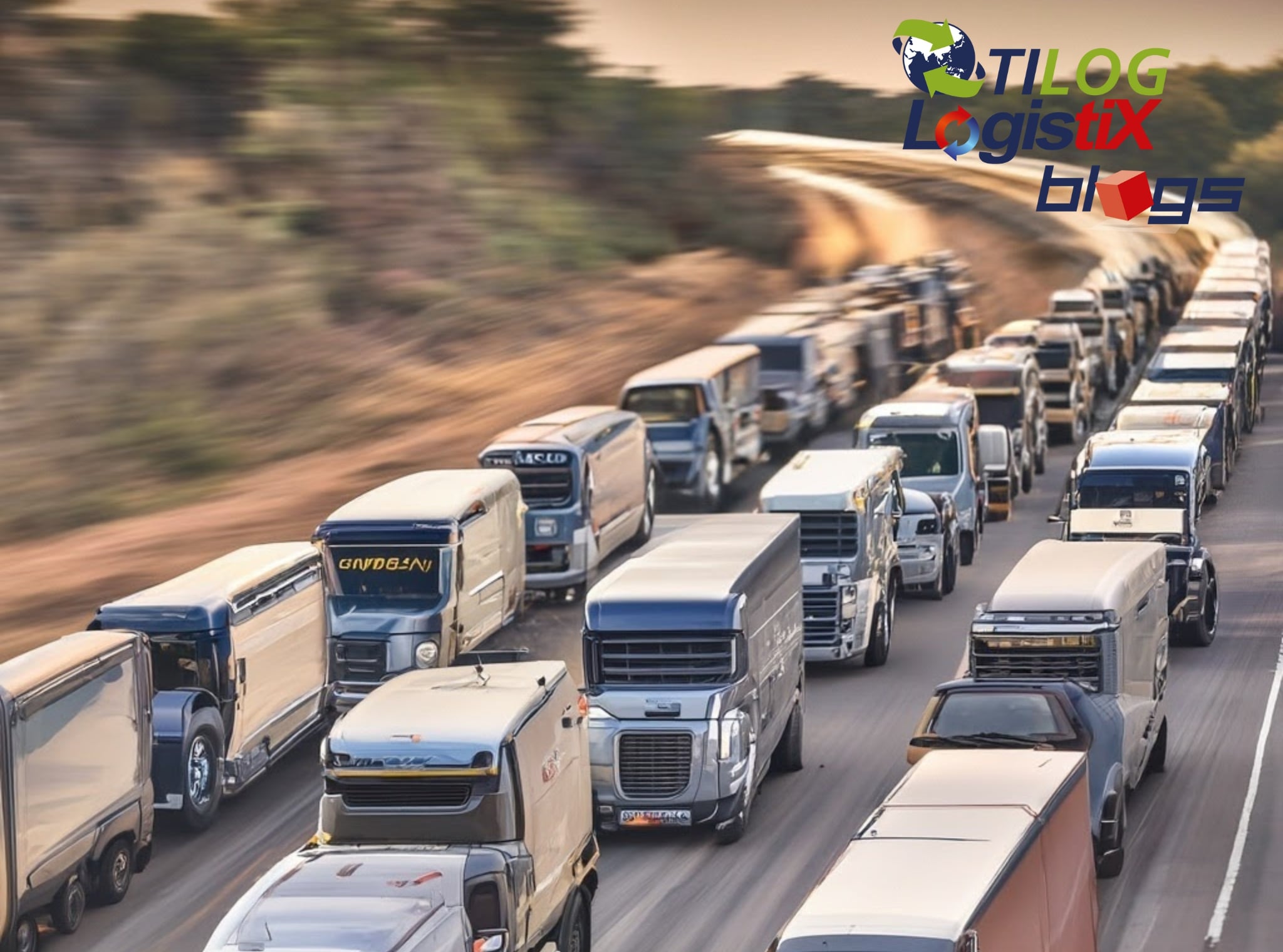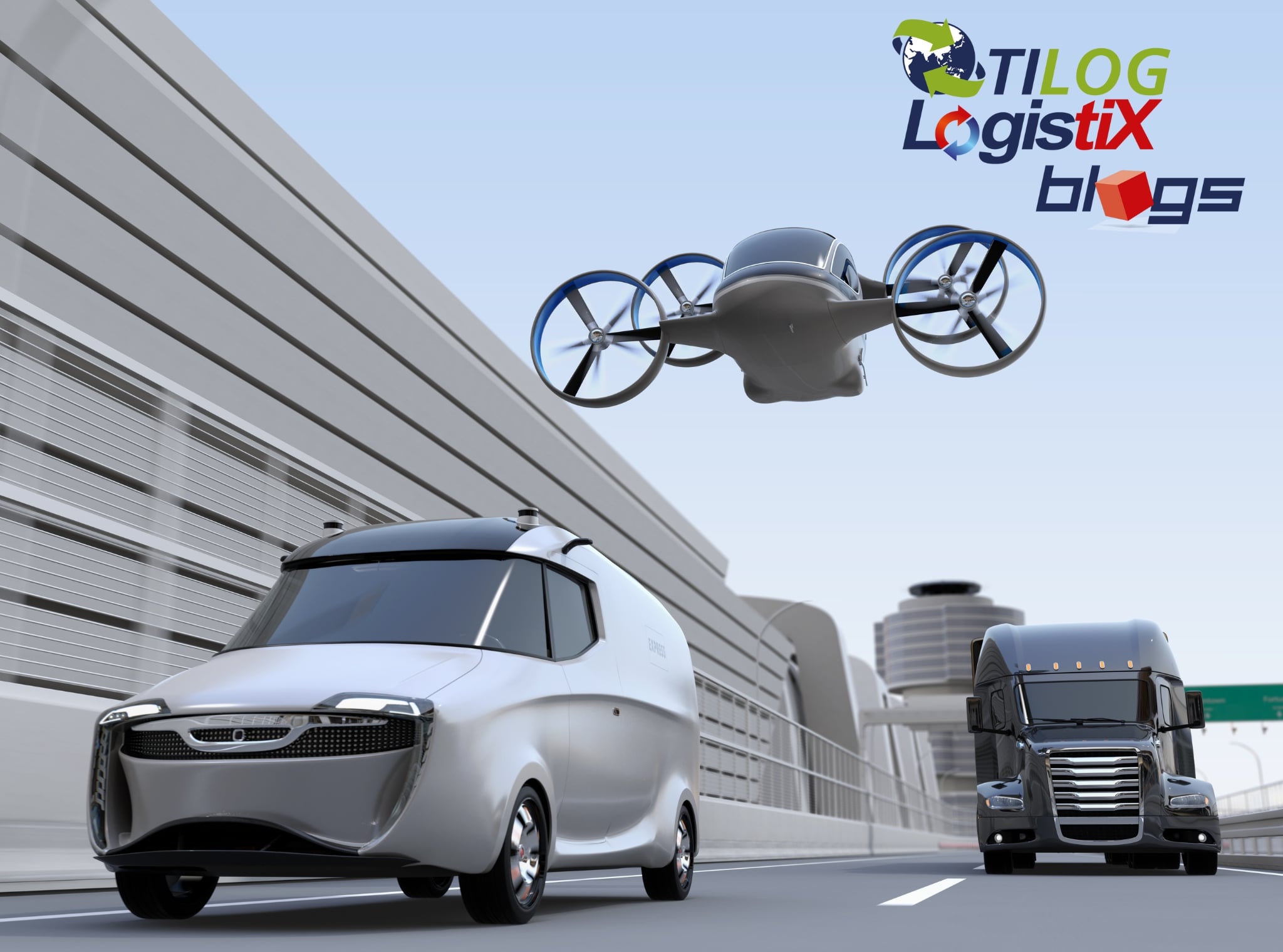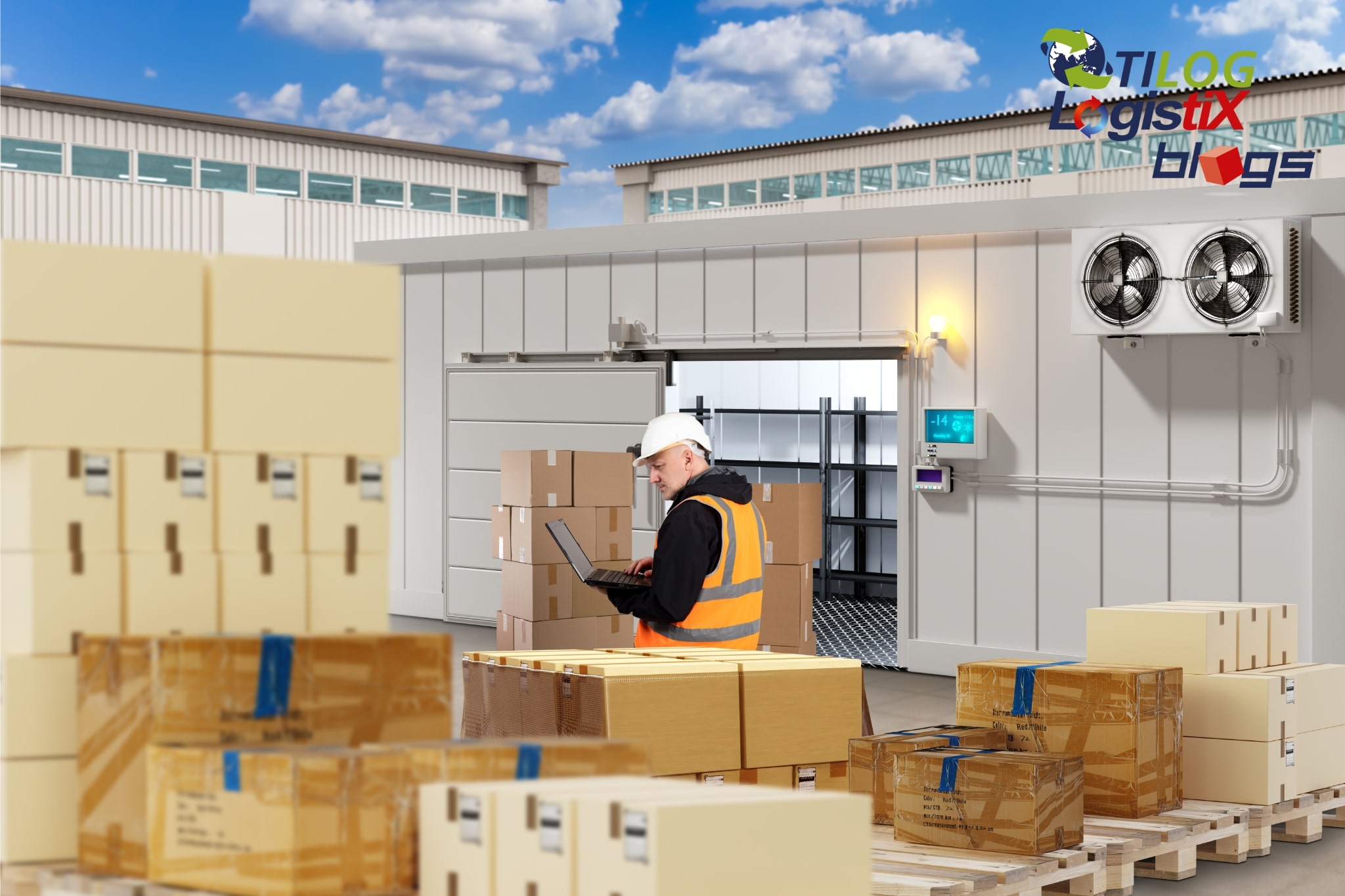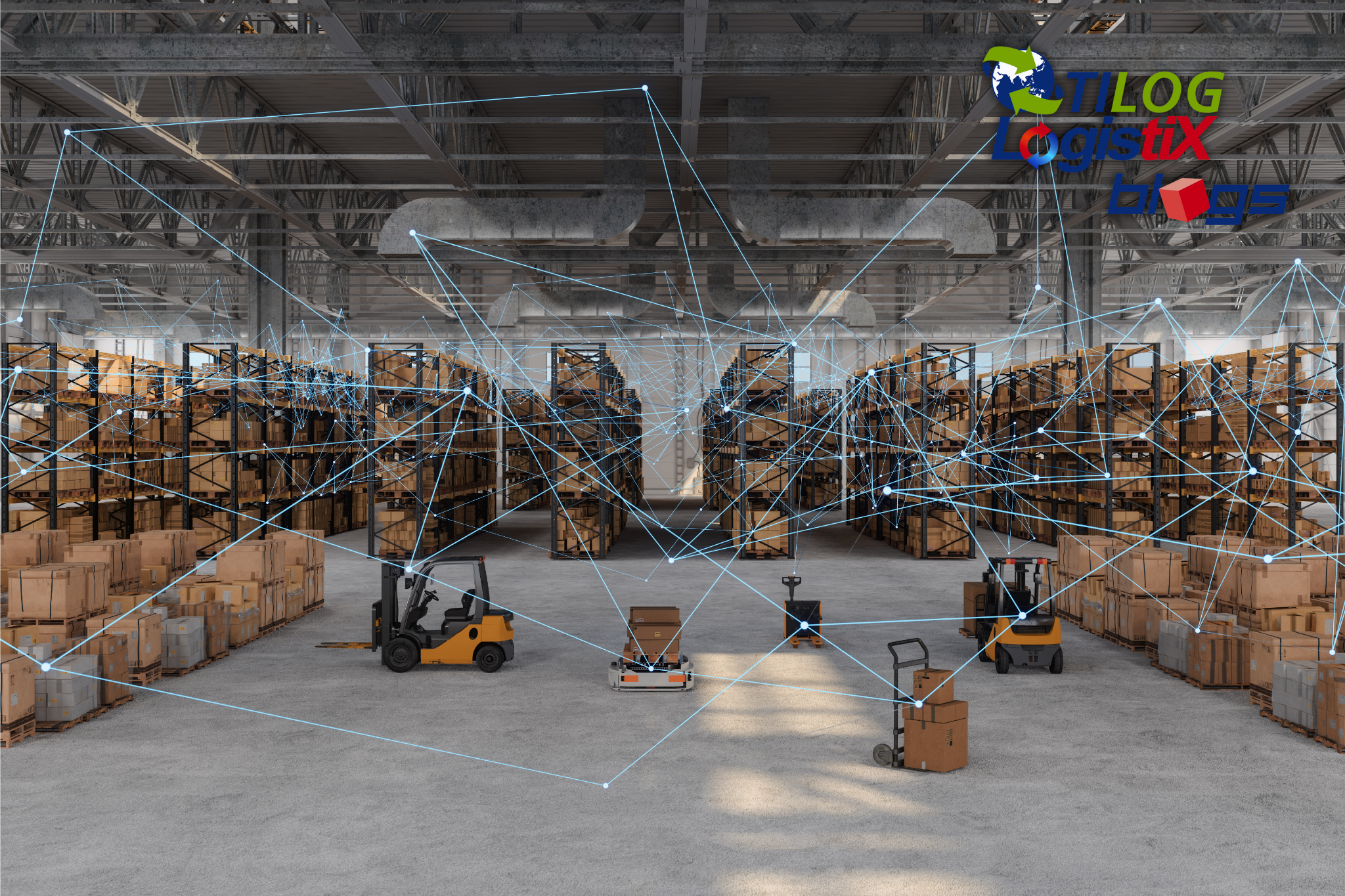Truck Platooning Systems Offers Efficient Connectivity and Automated Control for Transportation
The trend of modern transportation is the automated and connected set of trucks.
This trend increases transportation efficiency in many aspects, including communication, connectivity, safety, cost reduction, and environmental friendliness.
In the future, drones may be used to enhance Truck Platooning Systems.

14 February, 2024
The increasing demand for efficient and safe transportation systems has led to the development of automated vehicles in the logistics industry, particularly truck platoons or automated truck fleets.
Truck Platooning System is an automated driving system that uses technology to connect two or more trucks together in a convoy, so they can run automatically as a platoon throughout the journey, such as on the expressways, making it possible to work semi-autonomously. The system will adjust every truck’s speed and direction according to the movement of the leading truck via wireless communication.
Accordingly, the seamless communication network is the backbone of this type of logistics. This interconnectivity allows for real-time response and helps optimize road space, increase traffic flow and safety with advanced driver assistance systems (ADAS) as well as reduce congestion on highways. This not only has a positive impact on the logistics by trucks, but also on other types of vehicles that share the road. Furthermore, trucks driven in this mode will reduce air resistance, so fuel efficiency is achieved for every vehicle in the platoon and leads to cost reduction as well as positive impact on the environment.
To date, many leading companies have tested this system with satisfactory results. Some examples include Daimler Trucks, the parent company of Mercedes-Benz which has been actively involved in testing truck platoon technology in the United States. It has partnered up with Peloton Technology, a company that specializes in connected and automated vehicle systems. Another brand, Volvo, has joined the European Truck Platooning Challenge, an initiative by the European Commission to promote and test truck platooning technology across European borders by organizing a fleet of trucks that travel from Sweden through several countries with the Netherlands as the destination. The system emphasizes the regulatory compliance because the truck platooning system has been designed to comply with regional and national regulations regarding vehicle spacing, safety standards and automated driving. Another example is a Swedish commercial vehicle manufacturer Scania who participates in the Dutch cooperative intelligent transport system (C-ITS) corridor project, which includes a truck category. It focuses on creating a path for connected driving and automated transport on European roads.

Truck Platooning System is an automated driving system that uses technology to connect two or more trucks together in a convoy, so they can run automatically as a platoon throughout the journey, such as on the expressways, making it possible to work semi-autonomously. The system will adjust every truck’s speed and direction according to the movement of the leading truck via wireless communication.
Accordingly, the seamless communication network is the backbone of this type of logistics. This interconnectivity allows for real-time response and helps optimize road space, increase traffic flow and safety with advanced driver assistance systems (ADAS) as well as reduce congestion on highways. This not only has a positive impact on the logistics by trucks, but also on other types of vehicles that share the road. Furthermore, trucks driven in this mode will reduce air resistance, so fuel efficiency is achieved for every vehicle in the platoon and leads to cost reduction as well as positive impact on the environment.
To date, many leading companies have tested this system with satisfactory results. Some examples include Daimler Trucks, the parent company of Mercedes-Benz which has been actively involved in testing truck platoon technology in the United States. It has partnered up with Peloton Technology, a company that specializes in connected and automated vehicle systems. Another brand, Volvo, has joined the European Truck Platooning Challenge, an initiative by the European Commission to promote and test truck platooning technology across European borders by organizing a fleet of trucks that travel from Sweden through several countries with the Netherlands as the destination. The system emphasizes the regulatory compliance because the truck platooning system has been designed to comply with regional and national regulations regarding vehicle spacing, safety standards and automated driving. Another example is a Swedish commercial vehicle manufacturer Scania who participates in the Dutch cooperative intelligent transport system (C-ITS) corridor project, which includes a truck category. It focuses on creating a path for connected driving and automated transport on European roads.

In addition, the Truck Platooning System has an opportunity to expand in the future as "drones" have become popular in a variety of applications including inspection, surveillance, and communication. Combined with the ability of drones to work in complex environments and collect real-time data, they have become an ideal choice for helping truck platooning systems to make deliveries more efficient. In the future, it is expected that drones will be used in truck platooning systems in various dimensions, such as communication and coordination. Drones can transmit real-time information such as traffic conditions and road obstacles as well as weather updates to trucks, thereby improve coordination.
They can also help trucks to adjust their speed and distance in response to the changing conditions and relevant factors, so they are especially useful in areas with poor network coverage and ensures that trucks within the platoon can maintain continuous communication.
Drones can be used to monitor traffic and optimize route selection by surveying the route ahead and providing information about traffic congestion, construction, road surface repairs, accidents, or other obstacles. This information is very useful for real-time route optimization for the truck platoons because delays can be avoided and intended schedule can be achieved.
Another interesting usage for drone is for the purpose of security and surveillance. Drones equipped with cameras and sensors can help improve truck safety by monitoring the surrounding area for potential dangers such as theft or unauthorized access. At the same time, drones can also be used to inspect the condition of trucks within the platoon for mechanical problems, damage, or maintenance requirements. This proactive approach prevents unexpected truck breakdowns and ensures that every truck in the platoon is in optimum operating condition.
Stay on top of the latest trends and movements in logistics like this with our blogs, and mark your calendar for TILOG-LOGIXTIX 2024 during 15-17 August 2024 at BITEC, Bangkok under the theme "Connecting the Logistics Future" to help over 9,000 industrialists and entrepreneurs in the logistics industry from both SMEs and large organizations connect with the future of endless possibilities.
Drones can be used to monitor traffic and optimize route selection by surveying the route ahead and providing information about traffic congestion, construction, road surface repairs, accidents, or other obstacles. This information is very useful for real-time route optimization for the truck platoons because delays can be avoided and intended schedule can be achieved.
Another interesting usage for drone is for the purpose of security and surveillance. Drones equipped with cameras and sensors can help improve truck safety by monitoring the surrounding area for potential dangers such as theft or unauthorized access. At the same time, drones can also be used to inspect the condition of trucks within the platoon for mechanical problems, damage, or maintenance requirements. This proactive approach prevents unexpected truck breakdowns and ensures that every truck in the platoon is in optimum operating condition.
Stay on top of the latest trends and movements in logistics like this with our blogs, and mark your calendar for TILOG-LOGIXTIX 2024 during 15-17 August 2024 at BITEC, Bangkok under the theme "Connecting the Logistics Future" to help over 9,000 industrialists and entrepreneurs in the logistics industry from both SMEs and large organizations connect with the future of endless possibilities.


